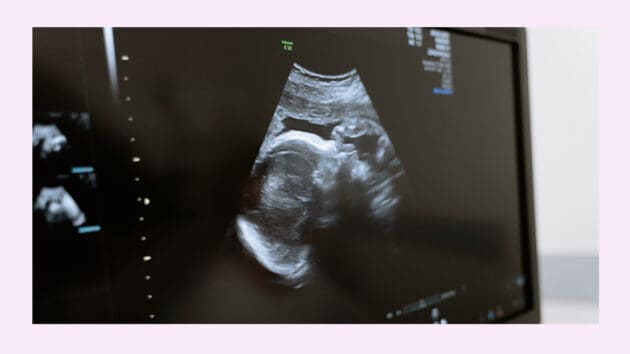
How many scans should I have in pregnancy?
Pregnancy can be a time of anxiety and uncertainty; it is relatively easy to check on how the mother is doing in pregnancy but the only way to accurately evaluate the baby is by performing scans. Mr Pran Pandya BSc MBBS MD FRCO, leading consultant in Fetal Medicine would advise a minimum of 6 scans throughout pregnancy but confirms that many mums find it reassuring to be scanned every 4 weeks.
In our latest blog, Mr Pran Pandya reveals more about each of the scans, the benefits and why they are important. Mr Pandya reveals, “We recommend scans that all are clinically indicated and provide optimum reassurance to parents as well as an opportunity to detect conditions that may be of concern e.g. miscarriage, chromosomal abnormalities, structural anomalies and babies that may not be growing normally either too small or too large.”
1. Early pregnancy scan – 6 to 11 weeks
Scans at less than 10 weeks are aimed at confirming there is a heartbeat, seeing how many babies there are, and dating the pregnancy. They are particularly helpful if you have pain, bleeding or have had a miscarriage in the past.
At 12 weeks, we measure the Nuchal Translucency and start to look at the early development of the baby, eg brain, heart, abdomen, bladder and limbs. If you have not had the NIPT, we can perform the Combined Test which uses the mothers age, size of baby, Nuchal Translucency and 2 biochemical markers in your blood to screen for T21, T18 and T13. In women who have had NIPT, we do not need to take a blood sample but focus on fetal development.
3. Early fetal anomaly scan – 16 weeks
We look at the fetal growth and evaluate the fetal development/anatomy to provide early reassurance to the family – at a time when the mother still has not felt the baby move.
4. Fetal anomaly scan – 20-22 weeks
A detailed scan to evaluate the fetal anatomy and development of your baby from head to toe.
5 & 6. Fetal Wellbeing scan at 28 and 36 weeks
The purpose of this scan is to check the fetal growth and blood flow to make sure the baby is growing normally. We also recheck the fetal brain, heart, kidneys and bowel because these continue to develop throughout pregnancy and we can detect new anomalies in these systems. In just under 5% of cases we find that the baby is breech at 36 weeks and this will have a major impact on how you deliver your baby.
Make an appointment:
Mr Pran Pandya, consultant in Fetal Medicine performs Antenatal Screening and Scanning at our location at The Portland hospital using state-of-the-art in house scanning facilities. Mr Pandya, is an established and well-known consultant who is widely published in the field of fetal medicine and is Editor-in-Chief of Fetal Medicine Basic Science and Clinical Practice. He brings vast expertise and is the Director of Clinical Lead of Fetal Medicine services at University College London Hospitals, a world-renowned centre for fetal diagnosis and therapy.
To learn more about our Antenatal Screening and Scanning or for appointments and enquiries, please call our team on 020 7101 1700. or by emailing [email protected]
London Gynaecology is private gynaecology practice led by a team of consultant gynaecologists at our practice locations at The Portland Hospital and Austin Friars, City of London. We offer a full selection of pregnancy screening tests and scans to give you reassurance during your pregnancy.
